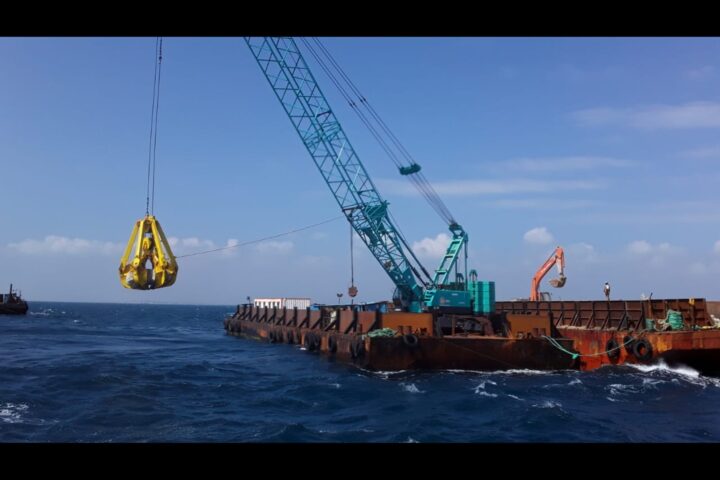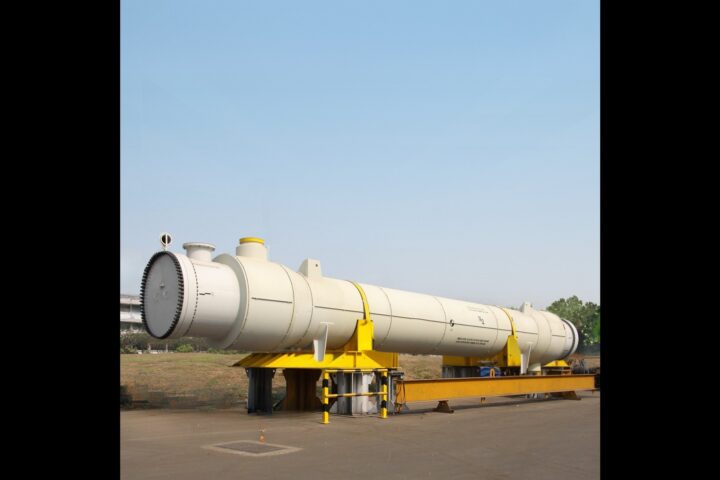Flow Management plays a crucial role in CAPEX projects by focusing on the reduction of internal wastages, says Anantha Keerthi, Partner, Vector Consulting Group
What are the key challenges India Inc faces in optimizing efficiency in CAPEX projects?
For companies, capital expenditure (CAPEX) projects are not an everyday affair. However, when undertaken, they significantly divert the top management's attention away from the core business operations. Delays in CAPEX projects directly impact the intended return on investment (ROI), but what concerns leaders most is the uncertainty in project completion and the lack of control. Particularly for companies in India, where borrowing costs are high, the impact of delays on ROI is substantial. Moreover, the real damage includes opportunity loss, misleading outlooks provided to stakeholders, disruptions in cash flow management, significant stress towards the project's conclusion, and considerable effort by senior management to get the project back on track. Having learned from bitter experiences, companies tend to adopt one of two distinct approaches:
A) Outsource as much as possible to conserve management bandwidth.
Or
B) Create an in-house project team to take control of the project.
Companies oscillate between these options, yet the outcome often remains unchanged. When questioning management about what went wrong or what could be improved in a CAPEX project, a common response is ‘planning’ — suggesting that better planning could have made a difference. Of course, in hindsight, everyone is wiser. However, ‘planning’ is a term so broad that it can be interpreted differently by each individual.
How Flow Management principles are transforming the landscape of CAPEX projects?
‘High emphasis on planning and steadfast adherence to the plan’ — these cherished practices, paradoxically, often barred companies from reaching their peak performance. But why is this the case? Imagine every large CAPEX project as a symphony requiring the harmonious collaboration of various agencies: technology partners, suppliers, engineering, procurement, construction experts, finance, and more. A lack of synergy among these players leads to significant delays and synchronization nightmares. Traditionally, the method to achieve collaboration involved binding all parties to a tight schedule and demanding unwavering commitment to this blueprint (Plan). However, projects are riddled with uncertainties; it's almost a given that one or more agencies will lag in their commitments. For true harmony, every agency should ideally adjust and compensate for any delays caused by others. Yet, this level of cooperation is a rare sight. Commitments, it seems, always come with strings attached—the greater the pledge, the heavier the conditions. Enter the Flow-based Management approach, a game-changer for handling large CAPEX projects. This innovative strategy has empowered companies to escape the quagmire of conditional commitments, paving the way for projects to be completed on time. It's not just about sticking to the plan anymore; it's about creating a dynamic, flexible strategy that moves with the project's flow, ensuring that when challenges arise, the project doesn't just stop—it evolves.
Provide examples of how Flow Management has successfully optimized workflows in CAPEX projects in the industry.
In the realm of industrial CAPEX projects, two pivotal factors dictate the minimal lead time achievable:
A. Ensuring the supply lead times of equipment remain unhampered.
B. Guaranteeing that civil, structural, and other necessary infrastructures are in place well before the arrival of equipment with long lead times.
The Flow Management approach effectively addresses these two critical success factors. Consequently, companies that have embraced this strategy have managed to significantly reduce their lead times, achieving reductions of 30-45 percent compared to industry benchmarks. Moreover, in the sphere of linear, repetitive projects — such as transmission lines, power distribution, and rural electrification efforts — there are well-documented and published success stories. These include:
â–ª A dramatic decrease in project completion timelines by over 50-60 percent, paired with a substantial enhancement in net working capital turns (by >2-3 times). This represents a tangible marker of success for an EPC (Engineering, Procurement and Construction) company.
â–ª A tripling in the Return on Capital Employed (ROCE).
These examples highlight the transformative power of Flow Management in optimizing workflows and achieving unprecedented efficiency in CAPEX projects across various sectors.
How does Flow Management help identify and eliminate potential bottlenecks during a CAPEX project?
Delving into the lifecycle of a CAPEX project, from its initiation to completion, an interesting observation emerges: only about 30% of the time is dedicated to the actual productive tasks, known as ‘touch time’. This raises a critical question: What transpires during the remaining 70% of the time? This significant portion of time — >70% — is predominantly consumed by two factors: internal wastages and external uncertainties. Although it's common to attribute most delays to external uncertainties, the reality is that more than half of these delays stem from internal inefficiencies that could have been mitigated. While traditional project management methods put a premium on meticulous planning to predict and prepare for uncertainties, Flow Management shifts the focus towards minimizing these internal inefficiencies. The philosophy is simple yet powerful: reducing internal wastages by even 50 percent creates ample room to address and mitigate external uncertainties more effectively.
This significant reduction in internal wastages under Flow Management not only shortens the project lead time but also helps maintain tighter control over the project's budget and scope. This is crucial because most compromises related to budget and scope often stem from the pressure exerted by these time constraints. Flow Management, therefore, not only identifies and eliminates potential bottlenecks but also safeguards the project against budget overruns and scope creep, ensuring a smoother, more efficient path to project completion.
What strategies or tools does Flow Management employ to ensure a steady and uninterrupted workflow, especially in projects with resource constraints?
Achieving the shortest lead time hinges on maintaining an uninterrupted workflow. Flow Management, with its unique approach, excels in this aspect by closely examining the natural progression of each project on its own terms and diligently removing any obstacles—or wastages—that impede this flow. This methodology stands in stark contrast to the traditional project management approach, which typically involves creating a detailed project plan and allocating resources to tasks according to this blueprint. Flow Management encourages a shift in perspective: instead of rigidly assigning resources to tasks, it advocates for understanding and facilitating how work should seamlessly move through the available resources, paying particular attention to those that are most constrained.
In essence, large industrial CAPEX projects are managed akin to a production environment under Flow Management. The aim is to maximize output with whatever resources are at hand. This approach is particularly pertinent in contexts like India, where site execution often relies heavily on manual labor, and the availability of resources can pose significant challenges. Flow Management's adaptability and emphasis on efficiency make it a powerful strategy for ensuring steady and uninterrupted workflows, even in projects where resources are tight.
How can Flow Management adapt to unexpected disruptions and scope changes in large projects? Uncertainty is the only certainty in the world of projects. Despite meticulous planning and preparation, surprises are an inevitable part of the project environment. The illusion that external uncertainties are the main culprits behind project delays often stems from a lack of adequate time to respond to these surprises effectively. Flow Management plays a crucial role in CAPEX projects by focusing on the reduction of internal wastages. This strategic reduction not only shortens the overall lead time significantly but also reveals an intriguing possibility – by eliminating just 50 percent of these self inflicted inefficiencies, we can free up sufficient time to address and adapt to disruptions caused by external uncertainties. This approach enables projects to remain agile and responsive in the face of unforeseen challenges and scope changes, ensuring that projects can maintain momentum and progress towards their goals, despite the unpredictable nature of their environments.
What are some key benefits organizations have seen after implementing Flow Management in their CAPEX projects?
Organizations that have implemented Flow Management in their Capital Expenditure (CAPEX) projects have reported a range of transformative benefits which included
â–ª Dramatic Reduction in Project Lead Times: Projects are completed 30 to 50 percent faster than the industry benchmark, showcasing the efficiency and speed that Flow Management brings to the table
â–ª Increased Predictability in Lead Times: With Flow Management, the reliability and predictability of project timelines have significantly improved
â–ª Enhanced Return on Investment (ROI): Early completion of projects not only signifies a better ROI due to quicker time-to-market but also enhances the competitive edge of the organization.
â–ª A Stress-Free Environment: The implementation of Flow Management leads to a smoother project execution process, reducing surprises and allowing management to devote more time to core business activities rather than firefighting unexpected issues.
These advantages underscore the profound impact Flow Management can have on CAPEX projects, turning potential challenges into opportunities for growth and efficiency.






























Follow